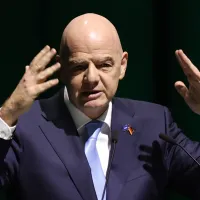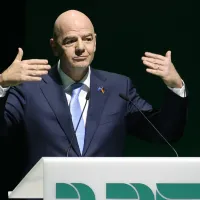The 2030 FIFA World CupCommon host of Argentina, Uruguay, Paraguay, Spain, Portugal and Morocco, forms to be one of the most unique and potentially groundbreaking tournaments in history. The tournament will already have matches over six different nations for the first timeCelebrates the centenary.
However, further significant changes are being considered, with FIFA, which is reportedly investigating the possibility of increasing the number of participating teams. This potential expansion, in combination with the intense competition to host the final matchSuggest that the World Cup 2030 will be a very significant and potentially transformative event for the sport.
According to New York TimesFIFA examines the possibility of increasing the number of teams in 2030 World Cup from 48 to 64.
This would represent a significant extension from the 32-team format used in the previous World Cup since France in 1998 and a significant hope from the already expanded 48-team format planned to the 2026 tournament in the United States. Such an extension would have significant consequences, which could potentially affect qualification tournaments and require changes in the overall structure of the competition. The decision has significant consequences and can lead to further major changes in the future.

See also
FIFA makes an unexpected turn: lifts the shutdown of a national team from participating in the World Cup 2026
The bid process for the final match
Three cities are struggling to host the World Cup final 2030: Madrid, Barcelona and Casablanca. Madrid offers Santiago Bernabéu Stadiumwhile Barcelona’s camp NouAfter its planned renovation will have a capacity of 105,000.

See also
Historical announcement: FIFA reveals major changes for the World Cup final 2026
Casablancas Hassan II Stadium has an even greater capacity and strives for 115,000 seatsWhich makes it a strong challenger because of its potential to cater for a massive audience for the last match. This competition emphasizes the meaning and prestige associated with hosting the last match in a World Cup.
The potential expansion to 64 teams and the bidding process for the final match highlight the ongoing development of FIFA -VM. The extension, if implemented, would significantly increase the number of participating nations and reshape the qualification process.





